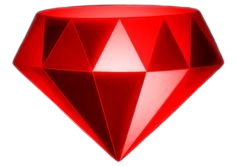An Overview of Popular Food and Beverage Brands in the United Kingdom

The food and beverage industry in the United Kingdom is a vibrant sector that plays a crucial role in the economy, culture, and daily life of its citizens. With a market value exceeding £104 billion, it encompasses a wide range of products, from traditional British staples to modern innovations that cater to evolving consumer preferences. This article explores some of the most popular brands within this sector, highlighting their significance and contributions.
Overview of the UK Food and Beverage Sector
The UK food and beverage industry is the largest manufacturing sector in the country, surpassing automotive and aerospace industries combined. It is characterized by a complex supply chain that includes everything from agricultural production to retail distribution. As consumer preferences shift towards sustainability, health, and convenience, brands within this sector are adapting to meet these demands.Key Trends Influencing the Industry
Recent trends shaping the UK food and beverage landscape include:- Sustainability: There is a growing emphasis on environmentally friendly practices, including sustainable sourcing and packaging. A significant portion of consumers now prioritizes products with minimal plastic use and recyclable packaging.
- Health and Wellness: With an increasing awareness of health issues, consumers are gravitating towards clean-label products that are free from artificial ingredients. This trend has led to a rise in demand for plant-based alternatives and functional foods.
- Innovation: The integration of technology in food production and distribution is transforming the industry. Companies are investing in research and development to create new products that align with consumer expectations for convenience and quality.
Popular Food Brands
Walkers
Walkers is synonymous with crisps in the UK, boasting sales of approximately £1.36 billion. The brand has successfully navigated challenges such as rising ingredient costs by diversifying its product line to include healthier options like baked crisps and reduced-fat varieties. Walkers' commitment to sustainability is evident through its initiatives aimed at reducing plastic waste in packaging.Warburtons
With sales reaching £867 million, Warburtons is a household name known for its bread products, including loaves, rolls, and crumpets. The brand has maintained its popularity through innovative marketing strategies and new product launches that cater to changing dietary preferences, such as gluten-free options.McVitie's
McVitie's has carved out a niche in the biscuit market with iconic products like Digestives and Jaffa Cakes. Generating around £520 million in sales, McVitie's focuses on quality ingredients and has invested heavily in marketing campaigns that resonate with British consumers' love for biscuits with tea.Heinz
Kellogg's
Kellogg's remains a leader in the breakfast cereal market with popular products such as Corn Flakes and Special K. The brand has adapted to health-conscious trends by launching whole grain options and cereals fortified with vitamins and minerals.Cadbury
Cadbury is arguably the most beloved chocolate brand in the UK, known for its Dairy Milk bars and seasonal treats like Creme Eggs. The brand has maintained its popularity through consistent product innovation and marketing campaigns that evoke nostalgia among consumers.Kit Kat
Kit Kat has established itself as a leading snack brand with its iconic wafer bars. Known for its "Have a break" slogan, Kit Kat continues to innovate with various flavours and limited-edition releases that keep consumers engaged.Weetabix
Weetabix is synonymous with healthy breakfast options in the UK. Its whole grain cereals are marketed as nutritious choices that provide energy for the day ahead. The brand has successfully expanded its product range to include various flavours and formats.Popular Beverage Brands
Pepsi Cola
Pepsi Cola holds a significant position in the soft drink market with sales of approximately £816 million. The brand has been revitalizing its image by focusing on healthier beverage options like Pepsi Max while maintaining its classic offerings.Coca-Cola
Coca-Cola remains one of the most recognized beverage brands globally. In the UK, it enjoys immense popularity due to its diverse range of products that cater to various tastes, including Coca-Cola Zero Sugar.Yorkshire Tea
Yorkshire Tea stands out as a quintessential British tea brand known for its robust flavour. With a loyal customer base, it has become synonymous with tea-drinking culture in the UK.Costa Coffee
As one of the leading coffee chains in the UK, Costa Coffee offers a wide range of beverages from espresso drinks to seasonal specials. Its emphasis on quality coffee sourced from sustainable farms resonates well with consumers seeking premium experiences.Popular Restaurant Brands
Greggs
Greggs is renowned for its bakery products, including sausage rolls and sandwiches. With an impressive public opinion rating of 79%, it has become a favourite for quick meals on-the-go while also expanding into healthier options like salads.J D Wetherspoon
J D Wetherspoon is a prominent pub chain known for offering affordable meals and drinks across the UK. Its business model focuses on providing value without compromising quality, making it popular among diverse demographics.Burger King
As a major player in the fast-food sector, Burger King competes vigorously with other chains by offering flame-grilled burgers that appeal to meat lovers while also introducing plant-based alternatives to attract health-conscious consumers.Conclusion
The food and beverage industry in the United Kingdom is not only about sustenance but also about cultural identity, innovation, and sustainability. Brands like Walkers, Warburtons, Heinz, Cadbury, Pepsi Cola, Yorkshire Tea, Greggs, and many others reflect both traditional values and modern consumer demands. As trends continue to evolve towards health consciousness and environmental sustainability, these brands are well-positioned to adapt while maintaining their strong foothold in one of the world's most dynamic markets.In summary, understanding these brands provides insight into not just what people eat and drink but also how they perceive quality, sustainability, and innovation within their daily lives. The future of this industry will undoubtedly be shaped by ongoing consumer preferences as well as broader societal changes impacting food production and consumption practices across the globe.

 Luxury
Luxury
